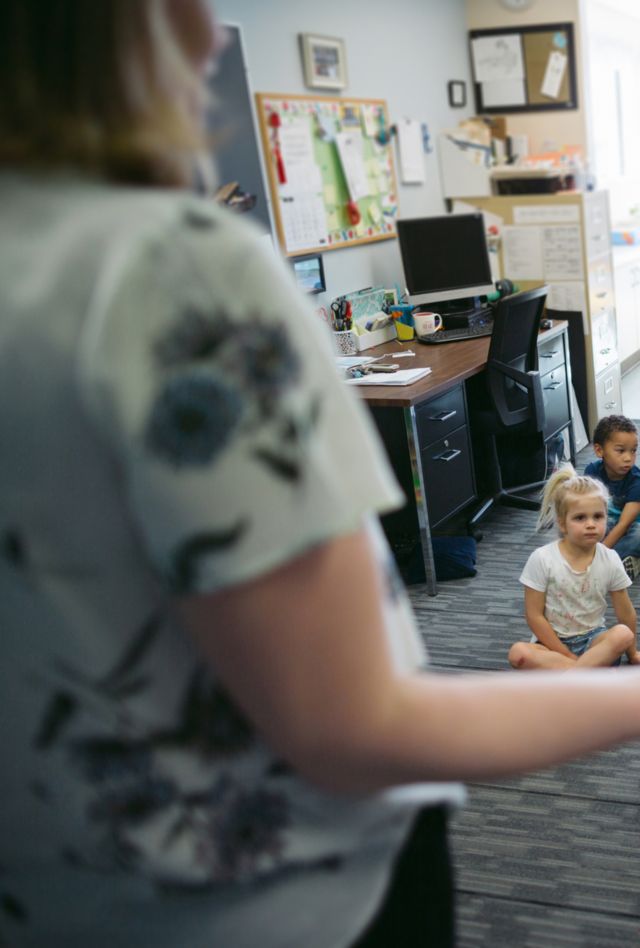Early Childhood Teachers’ Coursework and Children’s Outcomes

Problem
The debate over qualifications needed by early-childhood teachers is short on data.
Early childhood education (ECE) is often characterized by a patchwork of programs guided by diverse standards, regulatory environments, and purposes. In such an environment, there is a lack of consensus in the field about the knowledge, competencies, and qualifications that ECE teachers need to be effective. Though efforts have begun to unify the profession and to articulate a common set of standards, heated debate continues about the value of a degree and ECE-related coursework, and commensurately, about the kinds of knowledge teachers should possess.
Solution
NORC and its research partners examined teachers’ training and classroom quality.
With funding from the National Institutes of Health, NORC at the University of Chicago worked in collaboration with RAND and the University of Colorado, Denver on a pilot study to examine the postsecondary courses of 68 teachers in 38 centers. By linking the content of teachers’ postsecondary transcripts to the cognitive outcomes of the 238 preschool-aged children they taught, this study investigated two research questions:
- What are the relationships between the content of preschool teachers’ postsecondary coursework and their observed classroom quality?
- What are the relationships between the content of preschool teachers’ postsecondary coursework and the literacy and applied problem-solving skills of the children taught by them?
Researchers classified courses taken into teacher-knowledge categories: that is, content knowledge in math or English; pedagogical knowledge; pedagogical content knowledge (PCK) in math or literacy; child development knowledge; and practice knowledge. Research staff also recorded the number of credits earned for each course. Staff then employed hierarchical linear modeling to examine the relationship of the content of teachers’ coursework to classroom quality and children’s cognitive outcomes.
Result
The study identified relationships between teachers’ education and students’ outcomes.
The project, called “Links among Early Childhood Teachers’ Coursework, Children’s Outcomes, and Classroom Quality (2016-2018),” yielded these findings:
- Eighteen percent of ECE teachers earned a high school diploma as their highest level of education, 40 percent did not have a postsecondary degree but had completed college units, 13 percent had an associate’s degree, and 29 percent had at least a bachelor’s degree.
- Observed classroom quality was related to the number of units taken in child development.
- Children’s cognitive outcomes were unrelated to teachers’ degree attainment and to whether the field of degree was ECE-focused.
- Children whose teachers had taken more subject matter or PCK units in English demonstrated higher literacy skills than children whose teachers had taken fewer of these units.
- Children whose teachers had taken more PCK units in math demonstrated higher applied problem-solving skills than children whose teachers had taken fewer PCK math units.
Results of this study contribute to the understanding of the relationship of preschool teacher postsecondary education to observed classroom quality and children’s cognitive outcomes.








